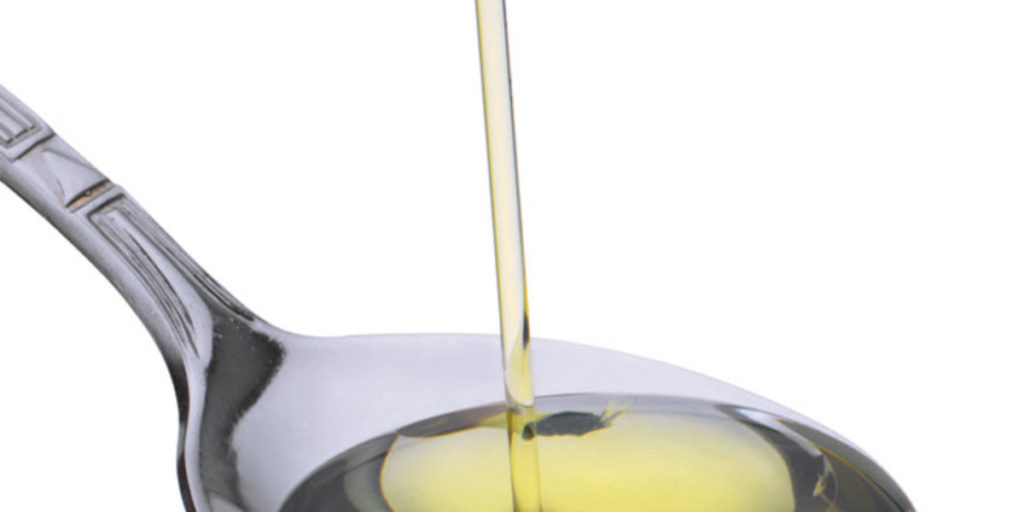The brains of Huntington’s disease patients seem to have problems making enough energy. Giving brains an energy boost might help with HD, but getting extra fuel into the brain is difficult. A new study from France reveals that feeding HD patients a special kind of fat improved their brain’s energy levels. This opens the door for new studies to test whether this improvement in energy could help with HD symptoms.
Burning fat in the brain?
Many tissues in the body have the ability to burn different fuels to make energy. Cells in tissues like the liver, or muscles, can break down sugar fat or proteins for the fuel they need to keep working. If there’s not much sugar around, these cells are happy to get their energy from somewhere else.
But the brain is different. Normally, the brain only uses a type of sugar called glucose for energy. It can’t do much with other sources of energy like fat. We feel lightheaded when we’re really hungry because low blood sugar is bad news for the brain, which eats a lot of it.
In certain circumstances, like starvation, the body has no sugar left. At these times, the liver produces special types of brain fuel called ketone bodies to keep the brain from starving.
For centuries, people have observed that when people are starving in this way, their brains function differently. In fact, for some people with epilepsy, this type of diet can reduce the severity of their seizures. Scientists have been interested in whether this type of diet would help in HD as well, and a few recent studies in mice suggest it may have some benefits.
Triheptanoin
Asking people to starve themselves every day, even if it’s going to help their brain, is a difficult way to treat brain diseases. So scientists have been interested in finding more agreeable ways to feed the brain in this way that might be beneficial.
One treatment that has been discovered is a type of fat called triheptanoin. This type of fat has a special property: when it’s broken down it causes the liver to make ketone bodies, without the need for starvation.
Remember, those ketone bodies are the chemicals normally produced by the liver during starvation, but triheptanoin ‘tricks’ the liver into making them without skipping a meal.
Early trial of triheptanoin in HD muscle
A group of scientists led by Fanny Mochel and Alexandra Dürr, of the Institut National de la Santé et de la Recherche Médicale in Paris, have a long-standing interest in the use of triheptanoin for HD. Triheptanoin can be swallowed as a synthetic oil. In 2010, they published a short study suggesting that in a small number of HD patients taking triheptanoin was well tolerated.
They also found interesting hints that some of the energy problems that muscle cells have in HD patients were made better by this short treatment with triheptanoin. These were interesting findings, but clearly the scientists were interested to see if this treatment could help the brain, more than the muscles.
How are we going to look at energy problems in the brain?
Since that original publication, Mochel and her colleagues have been working to develop ways of looking at brain energy problems in HD. They’ve come up with a clever way of challenging the brain using visual signals to look for energy-related chemical changes.
Basically, they take advantage of the fact that the part of our brain that processes what we see is near the back, and is pretty easy to take pictures of through the skull using a special magnet.
This new technique showed that when people without HD are shown an image, the part of the brain responsible for processing visual information starts using more energy. But HD brains didn’t do this so well, hinting that something is going wrong with their brains' ability to use energy.
New triheptanoin trial
Armed with a way to look at brain energy changes in Huntington’s disease, Mochel and her colleagues went back to the clinic. This time, they first did their brain scans to look at how the patients' brains were using energy. Again, they saw this strange failure to activate in the visual part of the brain of HD patients.
Next, they fed ten HD patients triheptanoin oil for a month. Patients consumed 1 gram of triheptanoin per day for each kilogram of their body weight. For the average North American, this means about 80 grams per day, split across 3-4 meals.
After a month of this treatment, people returned for repeated brain scans. The failure to activate the visual part of the brain in HD patients after a month of triheptanoin treatment was improved, and looked more like what happens in the brains of people without HD mutations.
There are a couple of important cautions about this trial. First it involved small numbers, increasing the risk of positive-looking findings happening by coincidence. Second, it was what’s called an open label trial. This means that both the researchers and the patients knew when they were taking triheptanoin. It’s possible that this knowledge could alter the patients' performance during the scan tests, which could make the results seem better than they are.
Exciting science – now what?
From a scientific point of view, this is really cool stuff. It suggests we can alter the way the brain uses energy by changing up people’s diets. And it gives us a very specific tool, triheptanoin, which seems to fix some of the brain energy changes observed in HD. What’s more, the special scans give us a way of quickly assessing whether such treatments are worth taking forward to larger studies.
But what we don’t yet know is what this means for Huntington’s disease in the long term. The big question is whether treatment with triheptanoin will produce long-lasting improvements in symptoms, or slow the progression of HD. This short trial can’t answer that question. The scan changes seem positive, but the real test is whether these scan improvements predict a beneficial effect of the drug on symptoms or disease progression.
The only way to figure this out is to run a longer trial of triheptanoin in Huntington’s disease – with a ‘blinded’ design so that nobody knows who’s getting the active treatment – to see whether these changes in brain energy lead to a long-lasting improvement in HD symptoms. You can be sure such a trial is on the minds of the scientists who ran this trial, and we look forward to hearing about the next steps.







